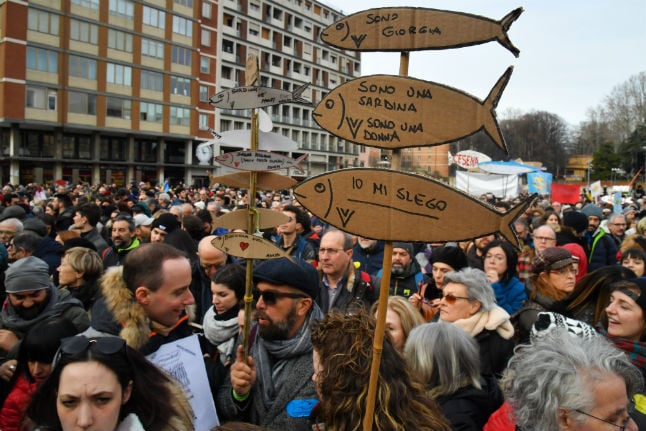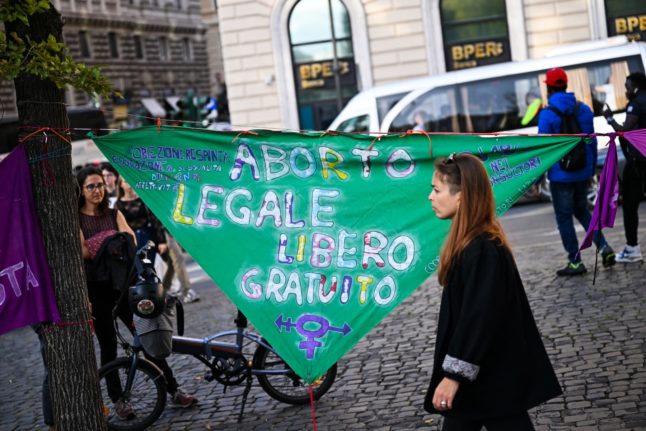According to the organisers, around 40,000 turned up for Sunday's event, a mix of music and speeches that was finishing Sunday evening with a rock and rap concert.
In the afternoon, crowds packed into Bologna's Piazza Otto Agosto carrying blue balloons and multicoloured version of the movement's now-familiar sardine symbol.
Bentornate in mare aperto sardine! #sardine #6000sardine ? pic.twitter.com/Ck1FucM9FR
— 6000 sardine (@6000sardine) January 19, 2020
“We are here to say that an alternative exists,” one of the movement's co-founders, 32-year-old Mattia Santori, told journalists. Their hope was that their activities would translate into votes in the upcoming elections, he added.
Spokesman Lorenzo Donnoli told AFPTV: “I hope and believe that Salvini will lose and that will finally be a defeat that bring back serious politics.”
Salvini is campaigning hard for a far-right victory in the January 26 elections in Emilia-Romagna. That could lead to the collapse of the government formed by the leftist Democrat Party and the anti-establishment Five-Star Movement.



 Please whitelist us to continue reading.
Please whitelist us to continue reading.
Member comments